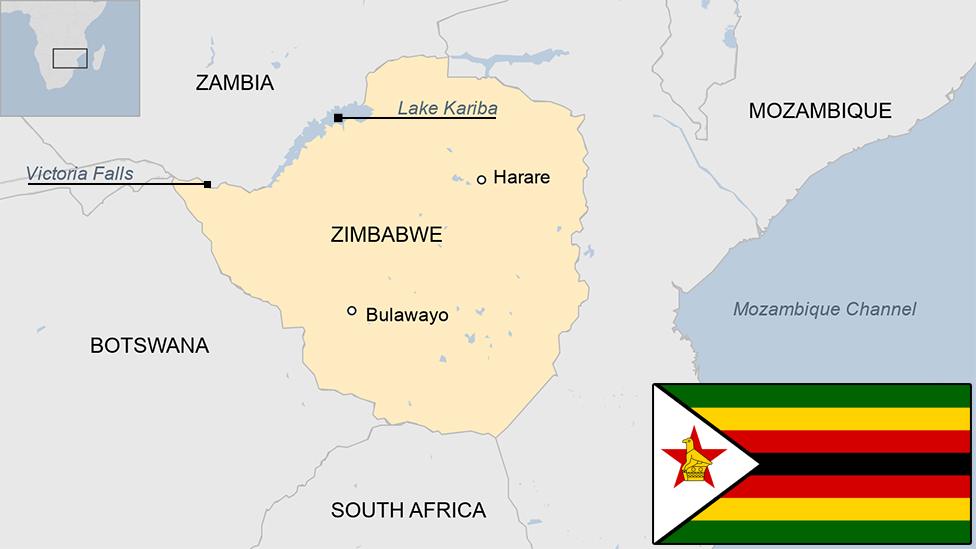Zimbabwe latest: Mugabe 'resisting calls to resign'
- Published
Mugabe: From war hero to resignation
Zimbabwe's long-time President Robert Mugabe is reportedly refusing to step down immediately, amid growing calls for his resignation.
The 93-year-old was put under house arrest during a military takeover on Wednesday, after a power struggle over who would succeed him.
The military said on Friday it was "engaging" with Mr Mugabe.
It also said it had been arresting "criminals" around the president but gave no names.
It said it would advise the nation on the outcome of talks with Mr Mugabe "as soon as possible".

The story in full

The army moved in after Mr Mugabe last week sacked Vice-President Emmerson Mnangagwa, signalling that he favoured his wife Grace Mugabe to take over his Zanu-PF party and the presidency.
If President Mugabe can be persuaded to step down officially it could help legitimise the military's dramatic intervention, the BBC's Andrew Harding reports from Zimbabwe.
On the streets, it is hard to find anyone who wants Mr Mugabe to stay on, our correspondent adds, but negotiating the manner of his departure and some sort of transitional agreement to follow could take some time.
So what's going on in Harare now?
It is very unclear.
Photos in the Zimbabwe Herald on Thursday showed Mr Mugabe meeting army chief Gen Constantino Chiwenga, external and the two envoys from the Southern African Development Community (Sadc) at State House in Harare.
Alongside them was Father Fidelis Mukonori, a Roman Catholic priest known to Mr Mugabe for years, who has been brought in to mediate.
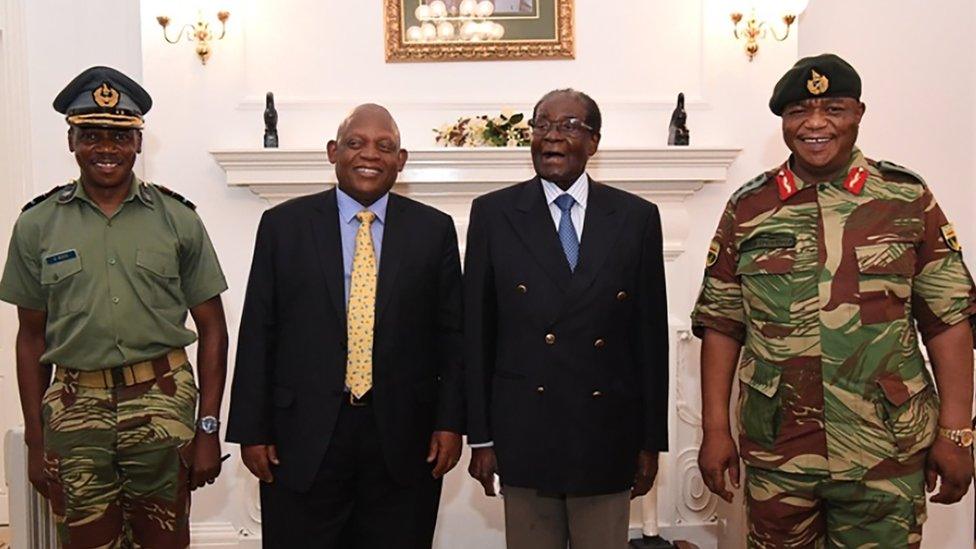
Mr Mugabe (second right) under house arrest, posing alongside Zimbabwe Defence Forces Commander General Constantino Chiwenga (right)
Sources close to the talks say Mr Mugabe - who has been in control of Zimbabwe since it threw off white minority rule in 1980 - is refusing to stand down voluntarily before next year's planned elections.
Some observers suggest that Mr Mugabe may be trying to seek guarantees of safety for himself and his family before stepping aside.
Andrew Harding: "There's a feeling people want to celebrate"
Zanu-PF officials had earlier suggested Mr Mugabe could remain nominally in power until the party congress in December, when Mr Mnangagwa would be formally installed as party and national leader.
On Friday the UK embassy stopped advising UK citizens in Zimbabwe to stay at home but said they should still "take sensible precautions".
Allow X content?
This article contains content provided by X. We ask for your permission before anything is loaded, as they may be using cookies and other technologies. You may want to read X’s cookie policy, external and privacy policy, external before accepting. To view this content choose ‘accept and continue’.
What do South Africa and the region want?
South Africa is hosting millions of Zimbabweans who fled after the country's economy crashed in 2008. It has a special interest in seeing stability restored.
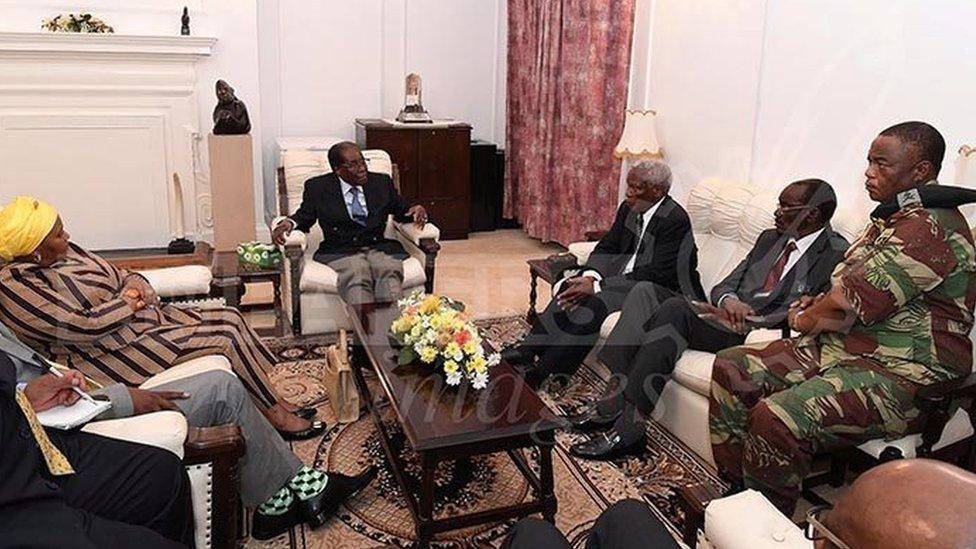
Mr Mugabe met officials at State House in Harare
South Africa's defence minister and security minister are meeting Mr Mugabe on behalf of Sadc, which South Africa currently leads. They urged Zimbabwe to "settle the political challenges through peaceful means," the AFP news agency reported.
The African Union said it would not accept a military seizure of power and demanded a return to constitutional order.
And Zimbabwe's opposition?
Opposition leader Morgan Tsvangirai said it was "in the interests of the people" that Mr Mugabe "resign... immediately" as part of a negotiated "all-inclusive transitional mechanism".
Another opposition leader, Tendai Biti, called for elections to be held.
What's happened to Grace Mugabe?
Early reports suggested Mrs Mugabe had fled to Namibia, but sources now say she is in the family compound in Harare, along with some of the youth wing of Zanu-PF who had backed her.
Who is Grace Mugabe?

You may also want to read:

How did the military takeover come about?
In the early hours of Wednesday, Zimbabwe's military took over the headquarters of national broadcaster ZBC and issued a statement saying they were targeting "criminals" around President Mugabe.
Troops and armoured vehicles encircled parliament and other key buildings throughout the day.
On Monday, Gen Chiwenga had warned the army would intervene to end what he called the "purging" of Zanu-PF members "with a liberation background", referring to the country's struggle for independence.
Mr Mnangagwa is one such veteran of the 1970s war which led to independence.
- Published15 November 2017
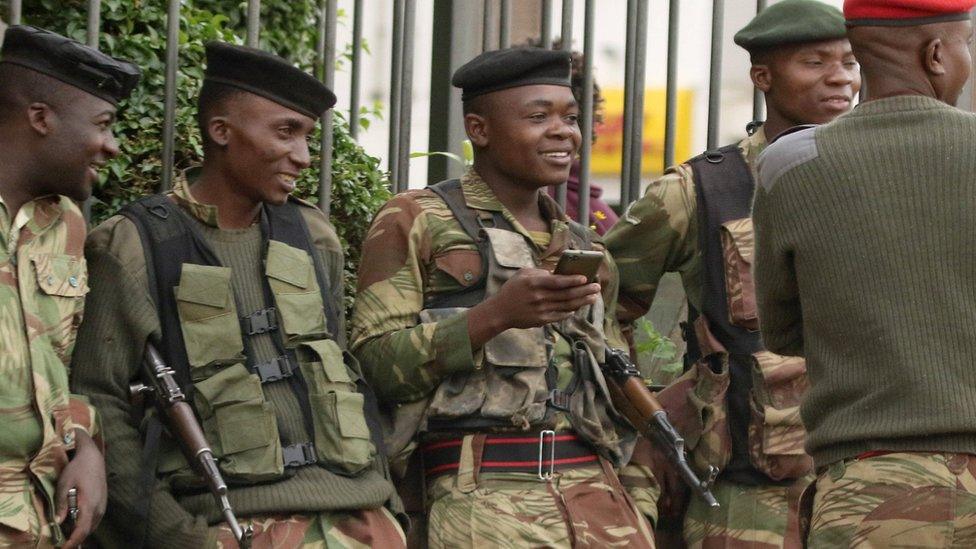
- Published16 November 2017
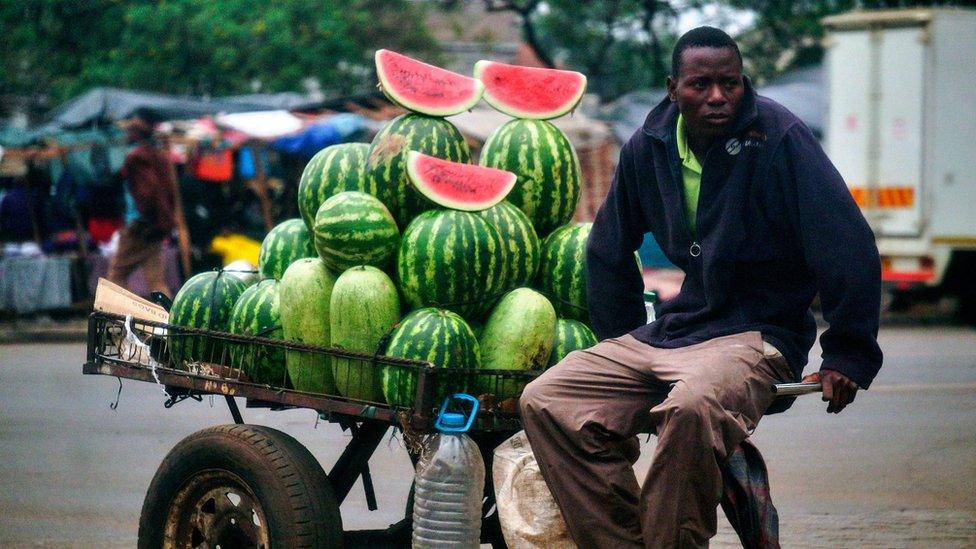
- Published16 November 2017
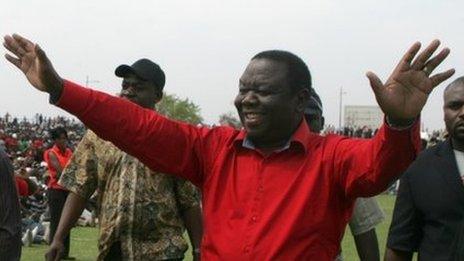
- Published15 November 2017
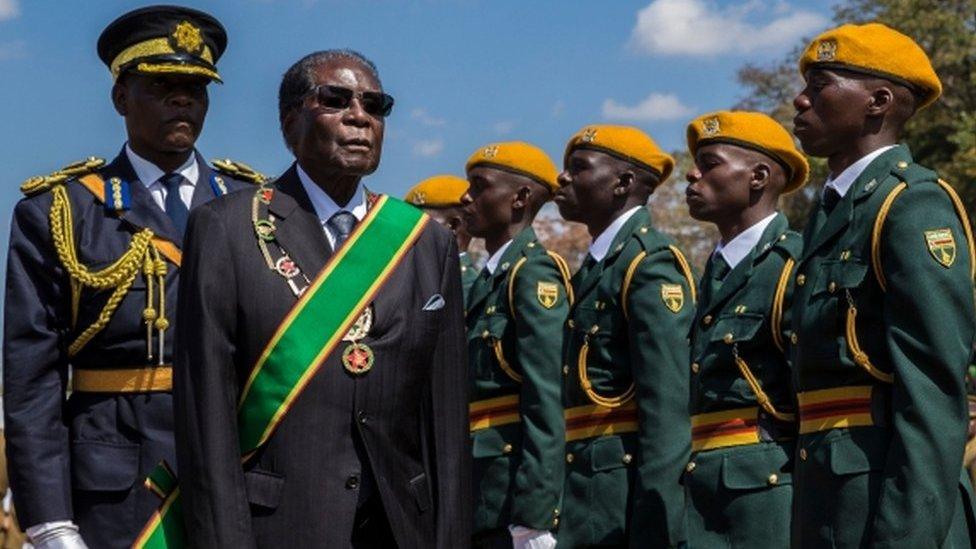
- Published17 November 2017
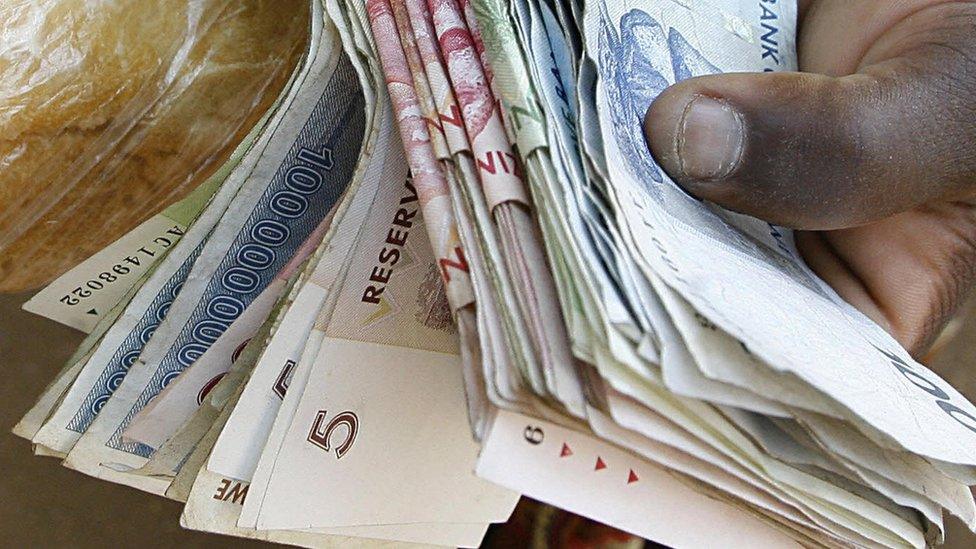
- Published21 November 2017
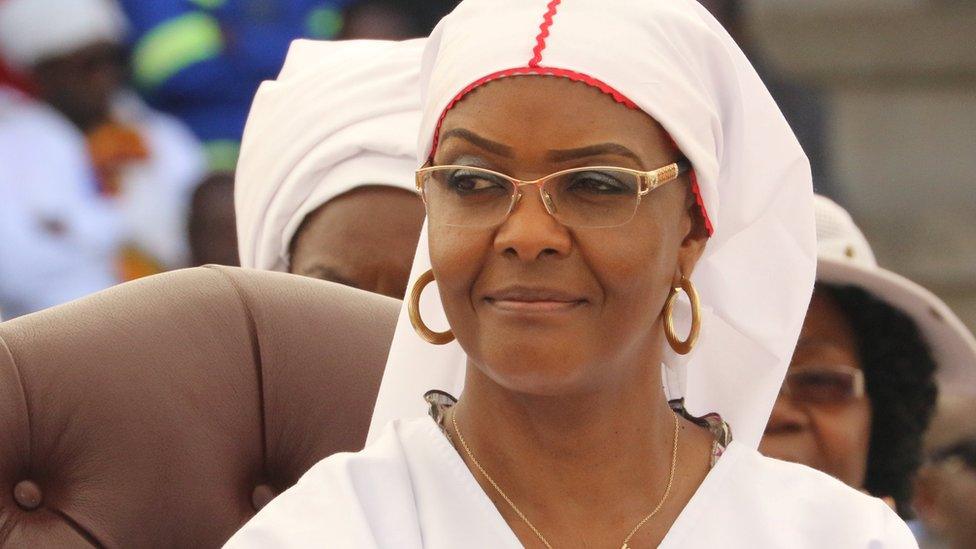
- Published15 November 2017
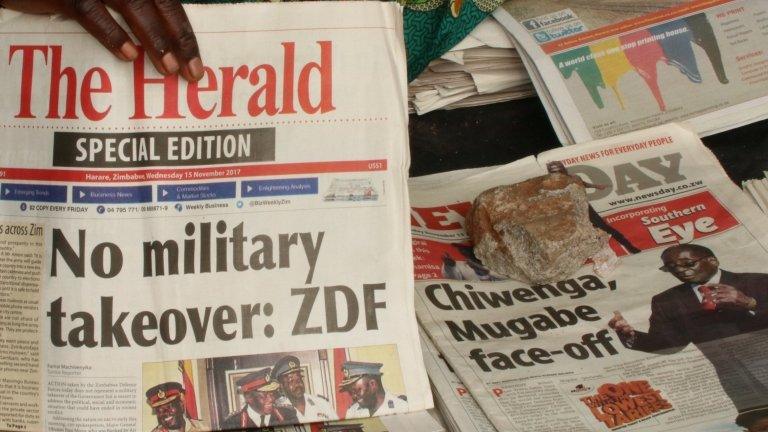
- Published17 November 2017
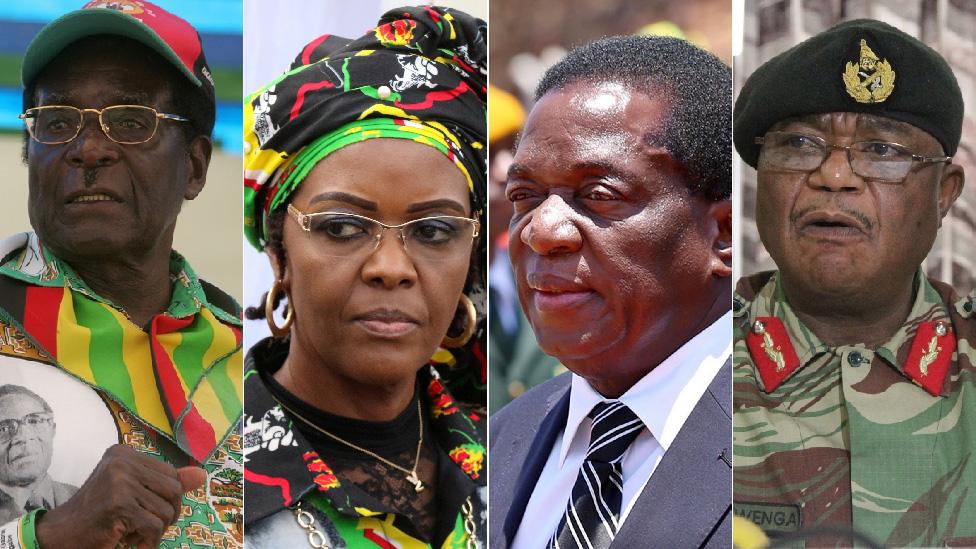
- Published16 November 2017
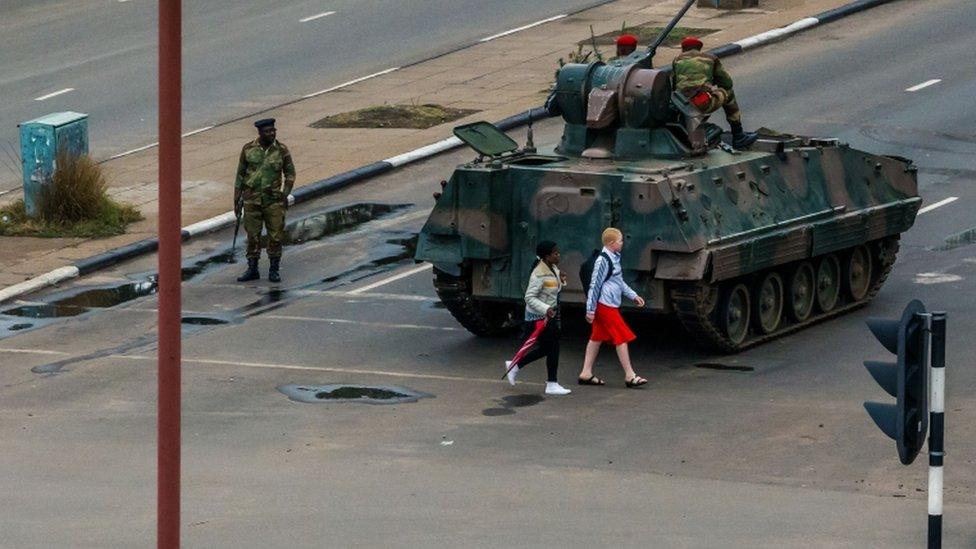
- Published20 November 2017
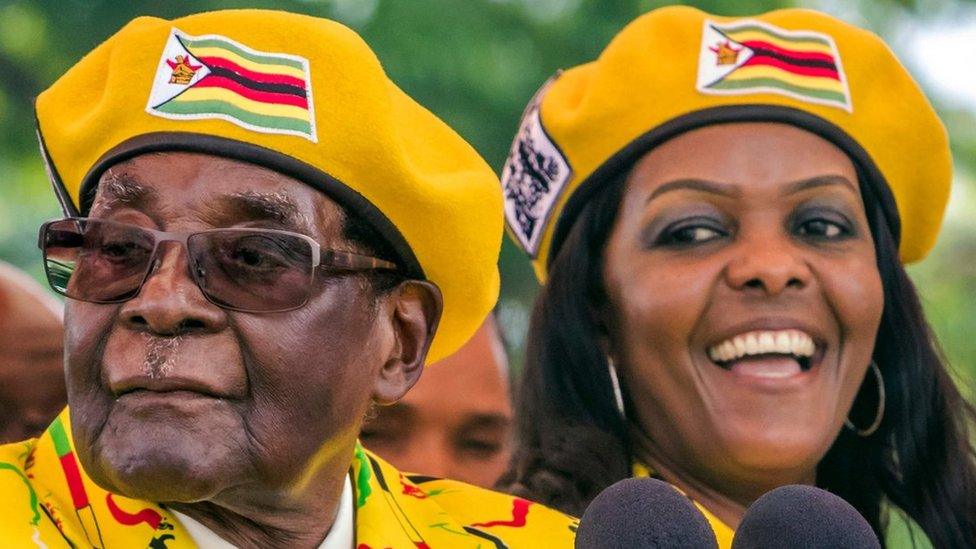
- Published15 November 2017
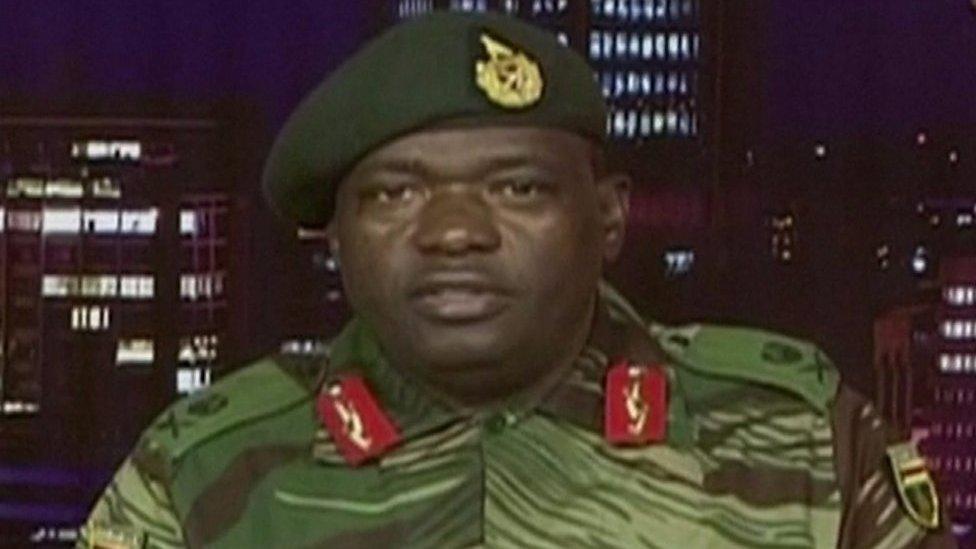
- Published21 November 2017
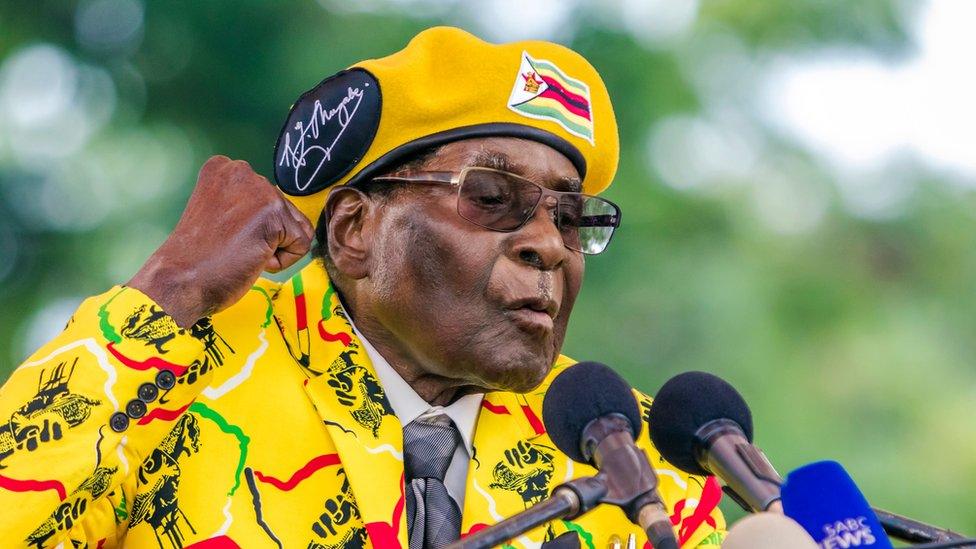
- Published19 November 2017
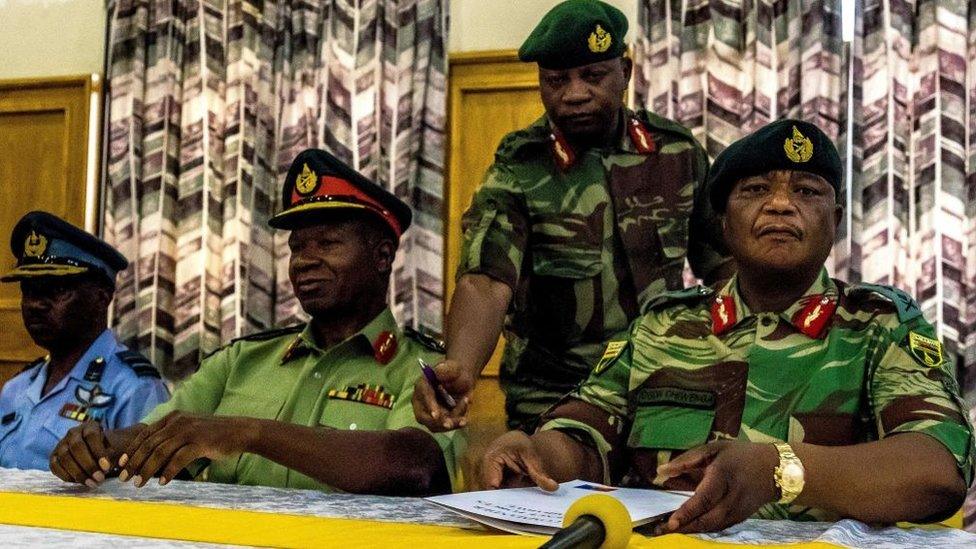
- Published6 November 2017
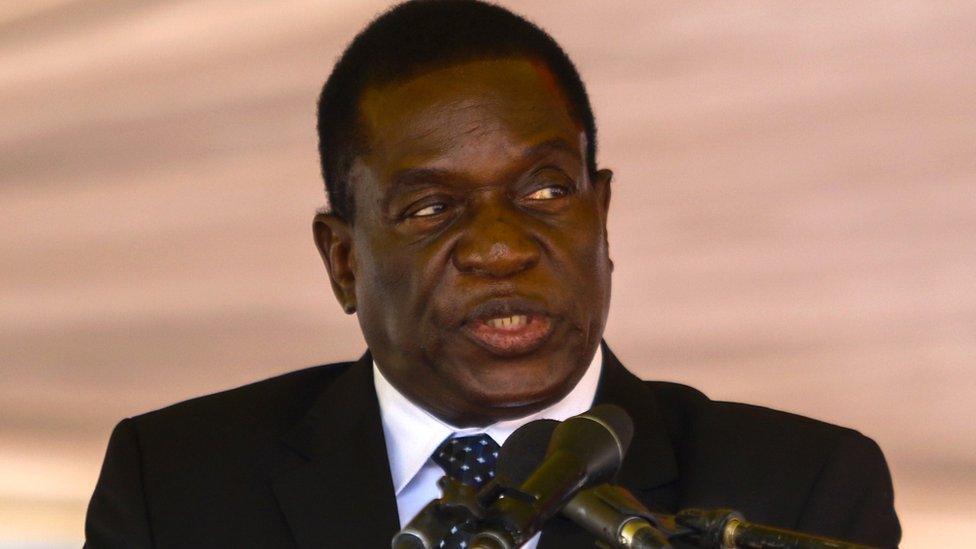
- Published30 August 2023
